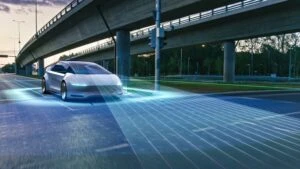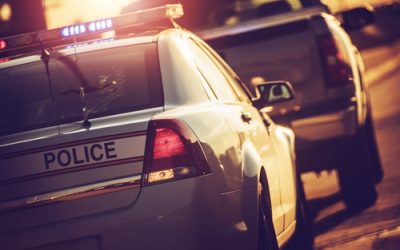
While autonomous vehicles promise increased safety and convenience, they don’t provide immunity from DUI laws. The current legal framework still holds the person in the driver’s seat responsible for the vehicle’s operation, even in self-driving mode.
Most jurisdictions, including Los Angeles, still need to update their laws for autonomous driving. The technology is also not perfect yet. They often require human intervention in certain situations. If you’re impaired, you may not be able to respond appropriately when the car requests your input.
As a result, if you’re in the driver’s seat and under the influence, you could face DUI charges regardless of whether the car was driving itself. If you’ve been arrested for DUI while in an autonomous vehicle, contact a Los Angeles DUI lawyer immediately for legal advice.
About Driving Automation Levels and DUI Laws
The Society of Automotive Engineers (SAE) defines six levels of driving automation, ranging from 0 (fully manual) to 5 (fully autonomous). Currently, most “self-driving” cars on the market are at Level 2 or 3, which still require some human oversight.
DUI laws apply to autonomous vehicles as they do for traditional cars. You’re expected to be sober and capable of taking control at any moment. The legal landscape may change as we move towards Level 4 and 5 autonomy, where human intervention is rarely or never required.
Until laws are updated to address fully autonomous vehicles, it’s safest to assume that DUI regulations still apply to drivers using self-driving modes. Unfortunately, marketing these vehicles can lull consumers into a false sense of security.
What Are the Potential Penalties for DUI in an Autonomous Vehicle?
Penalties for DUI in a self-driving car are currently the same as in a regular vehicle. If you’re arrested for DUI in an autonomous vehicle in Los Angeles, you could face penalties that can last for years. You’ll face:
- Fines
- License suspension
- Potential jail or prison time
- Mandatory alcohol education programs
- Probation
- Increased insurance rates
A DUI conviction can also have long-lasting effects on your employment, financial health, and personal reputation. You may also face additional penalties if your DUI causes injuries, property damage, or death after a crash.
Don’t let your vehicle’s autonomous driving features fool you into a false sense of security. If you’ve been arrested for DUI in an autonomous vehicle, speak with a lawyer as soon as possible. Your vehicle’s technology is not a defense against DUI charges.
How Do Law Enforcement Officers Determine Impairment in Drivers of Autonomous Vehicles?
Law enforcement officers are trained to detect signs of impairment by looking at how a vehicle moves on the road. Autonomous driving may smooth out some patterns, but it’s not a perfect replacement. If they suspect you may be drunk, you’ll get pulled over.
Once you’re pulled over, they’ll look for common indicators of drunkenness, such as slurred speech, bloodshot eyes, or the odor of alcohol. Officers may also conduct field sobriety tests or use breathalyzers to determine your blood alcohol content.
The fact that your vehicle has self-driving capabilities doesn’t change these standard procedures for DUI arrests. Though you’re using autonomous driving, being in the driver’s seat of an autonomous vehicle while impaired will be considered “operating” the vehicle under current laws.
What Should I Do If I’ve Been Drinking and Need to Use an Autonomous Vehicle?
Despite the advanced technology in autonomous vehicles, they need to be treated like any other car after you’ve been drinking. The safest and most legal option is to find an alternative method of transportation.
Consider using a rideshare service, calling a taxi, or designating a sober driver. These choices eliminate the risk of a DUI arrest and, more importantly, protect your safety and the safety of others on the road.
Technology is not a substitute for responsible decision-making. Until laws clearly state otherwise, assume that you must be sober to operate any vehicle in California, whether or not it has autonomous driving capabilities.
How Might DUI Laws Change as Autonomous Vehicles Become More Common?
As fully autonomous vehicles become more prevalent, lawmakers must address the challenges they present to existing DUI laws in California. This may involve redefining what it means to “operate” a vehicle or creating new categories of offenses related to impairment in self-driving cars.
However, these changes will take time and careful consideration. Lawmakers must balance public safety concerns with the potential benefits of autonomous vehicle technology. Until such changes occur, it’s safest to assume that current DUI laws apply to all vehicles, regardless of their level of autonomy.
Contact a DUI Defense Lawyer for Help
DUI laws and autonomous vehicles are pretty straightforward for now. The police and the courts treat them like normal vehicles, and self-driving technology doesn’t provide a loophole in DUI charges.
If you face DUI charges related to an autonomous vehicle, or if you have questions about how these laws might apply to your situation, seek professional legal advice by contacting Los Angeles DUI attorney for a free consultation.






